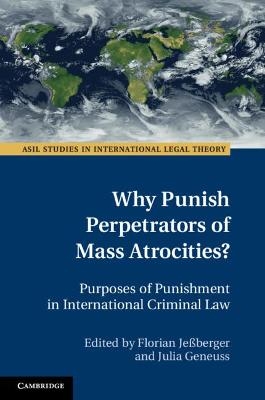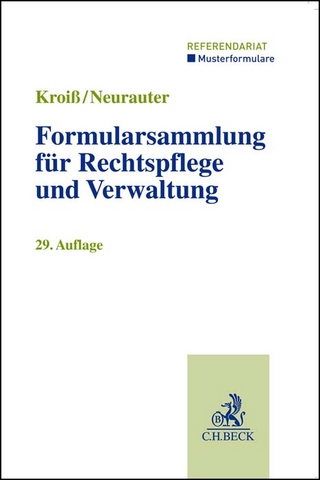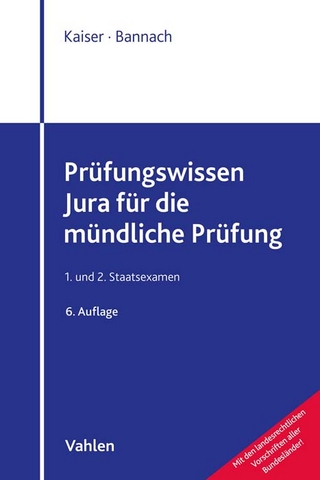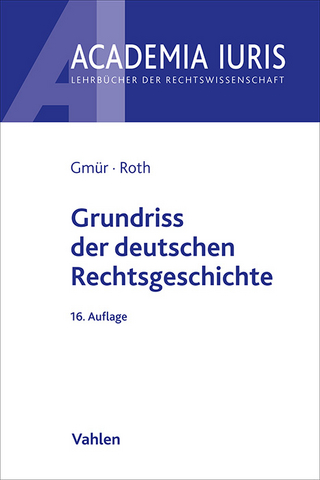
Why Punish Perpetrators of Mass Atrocities?
Cambridge University Press (Verlag)
978-1-108-46589-2 (ISBN)
This edited volume provides, for the first time, a comprehensive account of theoretical approaches to international punishment. Its main objective is to contribute to the development of a consistent and robust theory of international criminal punishment. For this purpose, the authors - renowned scholars in the fields of criminal law, international criminal law, and philosophy of law, as well as practitioners working at different international criminal courts and tribunals - address the question of meaning and purpose of punishment in international law from various perspectives. The volume fleshes out the predominant dimensions of a theory of international punishment and highlights the differences between 'ordinary' (domestic) crime and international crimes and their respective enforcement. At the same time, throughout the volume a major focus is on the practical consequences of the different theoretical approaches, in particular for the activities of the International Criminal Court.
Florian Jeßberger is Professor of Law at Universität Hamburg, where he holds the Chair in Criminal Law, Criminal Procedure, International Criminal Law, and Modern Legal History. Before joining Universität Hamburg in 2010, he was the Lichtenberg Professor of International and Comparative Criminal Law at Humboldt-Universität zu Berlin. He has held various visiting fellowships, inter alia, in Oxford, Ferrara, and Naples, and is a Member of the Board of Editors of the Journal of International Criminal Justice. Julia Geneuss is Assistant Professor of Law at Universität Hamburg and currently a Feodor Lynen Scholar of the Alexander von Humboldt-Foundation at Hebrew University in Jerusalem. She holds a Dr iur. from Humboldt-Universität zu Berlin and a LL.M. from New York University School of Law. She has been awarded several prizes for her doctoral dissertation on the prosecution of crimes under international law in Germany, in particular under the principle of universal jurisdiction. She is a member of the Editorial Committee of the Journal of International Criminal Justice.
1. Introduction: the need for a robust and consistent theory of international punishment Florian Jeßberger and Julia Geneuss; 2. The practical importance of theories of punishment in international criminal law Silvia Fernández De Gurmendi; Part I. Setting the Framework – Criminological, Historical and Domestic Perspectives: 3. Criminology of international crimes Frank Neubacher; 4. Punishment rationales in international criminal jurisprudence – two readings of a non-question Sergey Vasiliev; 5. Punishment and the domestic analogy – why it can and cannot work Elies Van Sliedregt; 6. Not much, but better than nothing – purposes of punishment in international criminal law: a comment on the contributions by Frank Neubacher, Segey Vasiliev and Elies van Sliedregt Kai Ambos; 7. The why question in international criminal punishment – framing the landscapes of asking: a comment on the contributions by Frank Neubacher, Segey Vasiliev and Elies van Sliedregt Immi Tallgren; 8. Is international criminal law special?: A comment on the contributions by Frank Neubacher, Segey Vasiliev and Elies van Sliedregt Jochen Bung; Part II. Rationales for Punishment in International Criminal Law – Theoretical Perspectives: 9. 'Can I be brought before the ICC?' – Deterrence of mass atrocities between jus in bello and jus ad bellum Jakob V. H. Holtermann; 10. An Argument for retributivism in international criminal law Mordechai Kremnitzer; 11. Expressive theory of international punishment for international crimes Daniela Demko; 12. We're exhausting ourselves, let's get busy instead a comment on the contributions by Jakob v. H. Holtermann, Mota Kremnitzer and Daniela Demko Mark Drumbl; 13. Positive general prevention and the idea of civic courage in international criminal law Klaus Günther; 14. The individual and the international community – an outline for a combined meso preventive theory of international punishment Andreas Werkmeister; 15. The right to punishment for international crimes Jens David Ohlin; Part III. Consequences for the Practice of the International Criminal Court: 16. Prosecution strategy at the International Criminal Court in search of a theory Alex Whiting; 17. Selectivity in international criminal law – asymmetrical enforcement as problem for theories of punishment Harmen Van Der Wilt; 18. Theories of punishment in sentencing decisions of the International Criminal Court Gerhard Werle and Aziz Epik; 19. Theories of punishment at the Hague a comment on the contributions by Alex Whiting, Harmen van der Wilt and Gerhard Werle and Aziz Epik Silvia D'ascoli; 20. From punitive to restorative justice – victims participation, reparations and theories of punishment Philipp Ambach; 21. Concluding remarks: dimensions of 'why punish' Florian Jebberger and Julia Geneuss; Select bibliography; Index.
| Erscheinungsdatum | 28.06.2021 |
|---|---|
| Reihe/Serie | ASIL Studies in International Legal Theory |
| Zusatzinfo | Worked examples or Exercises |
| Verlagsort | Cambridge |
| Sprache | englisch |
| Maße | 152 x 228 mm |
| Gewicht | 603 g |
| Themenwelt | Recht / Steuern ► Allgemeines / Lexika |
| Recht / Steuern ► EU / Internationales Recht | |
| Recht / Steuern ► Strafrecht | |
| ISBN-10 | 1-108-46589-7 / 1108465897 |
| ISBN-13 | 978-1-108-46589-2 / 9781108465892 |
| Zustand | Neuware |
| Haben Sie eine Frage zum Produkt? |
aus dem Bereich


